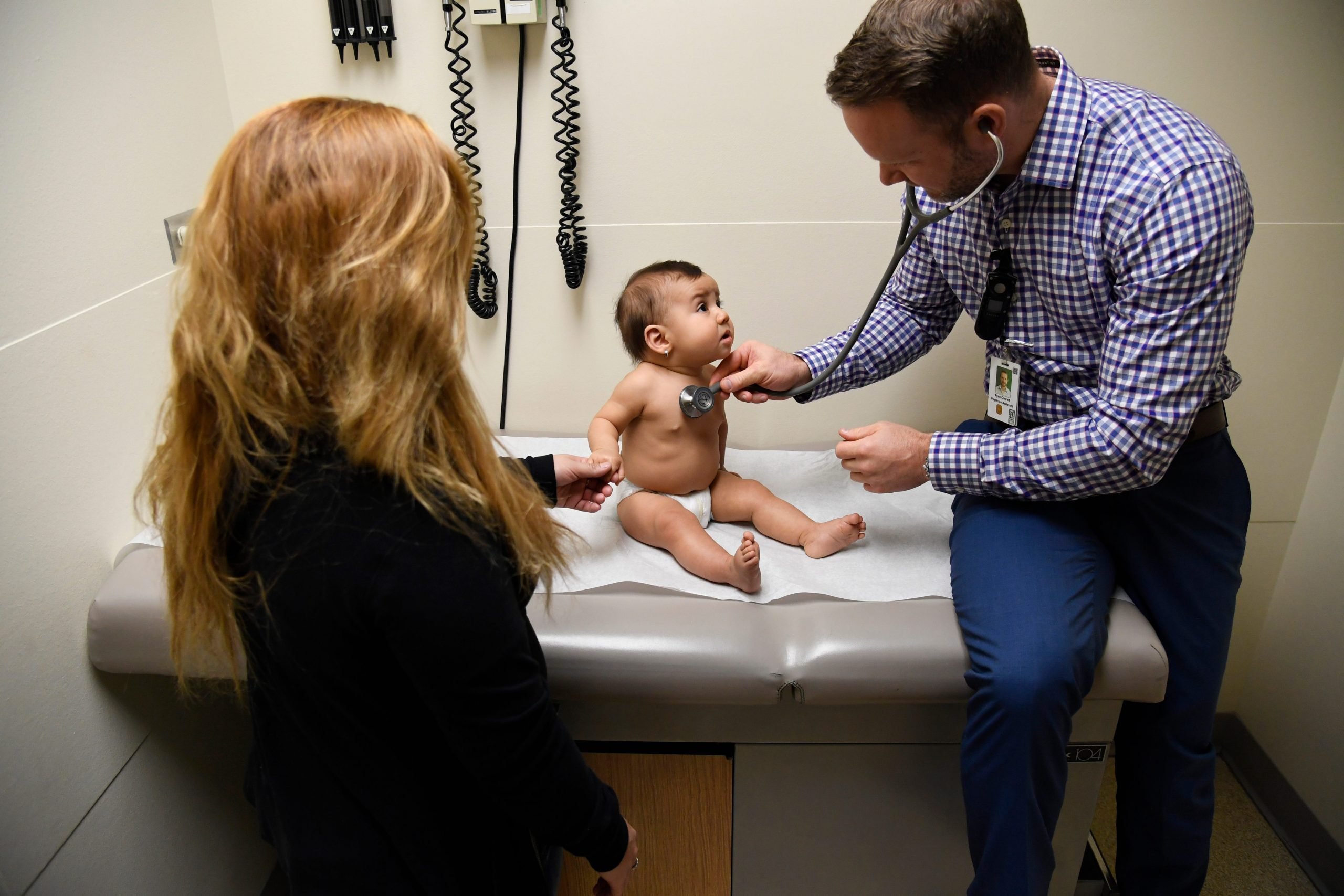
- A Congressional report found top baby foods contain high levels of toxic heavy metals.
- Experts say avoid rice-based foods, focus on variety, and shorten the baby food phase to reduce risks.
- Keeping up with pediatric appointments and advocating for more oversight can help too.
- Visit Insider’s homepage for more stories.
Some popular baby foods are tainted with dangerous levels of heavy metals including lead, arsenic, and mercury, according to a Congressional report released last week.
The levels of toxic metals in the products far exceed the limit the US Food and Drug Administration has set for other products like bottled water, the report also said.
The findings highlighted how baby food manufacturers have been held to loose standards and in some cases haven’t even lived up to their own safety benchmarks.
“Parents are now panicking,” registered dietitian Nicole Silber, creator of Tiny Tasters, told Insider, as evidenced by the conversations in her mom Facebook groups and questions flooding her inbox.
After all, exposure to heavy metals in childhood is linked to permanent dips in IQ, an increased risk of future criminal activity, and damaged long-term brain function.
Read more: Some baby foods may be tainted with high levels of toxic heavy metals like arsenic and lead
But Silber and other children's health experts said that while the report gives the topic renewed attention and should spur important changes to better hold food manufacturers accountable, the findings aren't entirely new - nor do they drastically influence advice for feeding little ones.
"I would not freak out about this," Dr. Shilpa Patel, a pediatrician based in New Jersey, told Insider. Here's what you should do instead.
Understand traces of heavy metals in some foods is inevitable
Heavy metals are found in soil, and bound to contaminate crops grown in it. They can also get into food during manufacturing and packaging processes.
"Small amounts of some metals and minerals are actually important for our body to function," Dr. Rashmi Jain, a pediatrician and founder of BabiesMD.com, a virtual pediatric urgent care center, told Insider. "Higher levels of these metals in the body does not mean our children will definitely develop neurotoxicity, it just increases their risk."
Know that 'high levels' are relative
While the Congressional report found that the levels of some heavy metals in baby food ingredients "eclipsed" those allowed in other products - with lead levels as much as 177 times higher than the limit for bottled water - Silber said the comparison isn't apples to apples.
For instance, the limits on bottled water take into account the fact that you'll probably drink most, if not all, of the bottle. It's understandable then that the amounts found in, say, cinnamon - of which only a pinch may wind up in baby food - exceeds those limits.
"Don't panic," Jill Castle, a pediatric nutritionist and registered dietitian, told Insider. "Things are probably better today than they were 20 years ago or 40 years ago." Today, she added, we just know a lot more about brain development and food safety, and are rightfully demanding more stringent regulation on baby food manufacturers.

Make 5 simple swaps
According to a 2019 national investigation led by Healthy Babies, Bright Futures finding that 95% of baby foods tested contain toxic chemicals including arsenic and lead, 15 foods account for half the risk, with rice-based foods at the top. Rice absorbs more arsenic from groundwater than other crops.
As such, making five particular food choices can reduce toxic metal residue by 80%: Choose rice-free snacks over rice-based ones, try a frozen banana or chilled cucumber instead of rice-based teething biscuits, opt for oatmeal over a rice cereal, give them tap water over fruit juice, and mix up their fruit- and vegetable-based foods rather than sticking strictly to those made with sweet potatoes and carrots.
Swapping baby foods made the manufacturers called out in the Congressional report for direct-to-consumer brands, however, won't necessarily make a difference, Andrea Ippolito, founder of SimpliFed, told Insider. "This is an issue of soil and heavy metals from agricultural and industrial practices," she said. "It's not easily solved in near term."
Focus on variety
Making sure your kid is eating a variety of foods not only naturally limits the amount of heavy metals that could be in any one food source, it also supports kids' development by supplying a range of nutrients and maturing their palate for different flavors and textures, which will benefit them long-term, Castle said.
She pointed to the latest US Dietary Guidelines for Americans, which for the first time included recommendations for 0- to 2-year-olds.
"One of their big points was to make every bite count, because nutrient content for that age group is extremely critical, and the reason it is extremely critical is brain development," she said.
Don't get stuck in the baby food phase
Due to their convenience, "it's easy to get stuck on baby food and not advance your baby," Castle, author of "The Smart Mom's Guide to Starting Solids," said.
But the meals are meant to be transitional, she said, used only for a few months (between about six and nine or ten months of age) along with other sources of nutrition, namely, breastmilk or formula and single-grain cereal. Single-ingredient finger foods like mushed peas or chopped up chicken can usually be introduced between 8 and 10 months, according to the Mayo Clinic.
If you do introduce fish, which is a great source of protein and other nutrients, stick to options that are more likely to be low in mercury, like light tuna (solid or chunk), salmon, cod, whitefish and pollock, the AAP recommends.
Make your own baby food if it makes you feel more comfortable, but it's not a surefire solution
Parents can make their own baby food by buying, washing, and blending their own fruits and vegetables, but that's no guarantee the final product won't be contaminated with heavy metals since even organic produce can be grown in soil with traces of them.
Plus, making your own introduces food safety risks, Castle said, since your kitchen isn't likely as sterile as manufacturing plants. "I'm not sure making homemade baby food is the answer," she said.
On the other hand, homemade baby food can have benefits beyond the potential reduction in heavy metals, Dr. Yolanda Evans, a pediatrician and mom of three kids under eight, found.
"As a full-time working parent, I found that making food at the same time I was preparing food for older family members was the most economic and efficient way to ensure balanced eating and variety," she told Insider. For example, if she was making a Crockpot meal with beans, she'd take some out, blend them, and put servings in an ice cube tray to freeze for the week ahead.

Visit the pediatrician often in the first 2 years of your kid's life
Regular pediatrician visits can help identify any development problems, whether influenced by your child's diet or something else, Jain said. "Parents are not maneuvering things alone."
The American Academy of Pediatrics recommends babies get checkups at birth, three to five days after birth, and then at one, two, four, six, nine, 12, 15, 18 and 24 months. At both their one- and two-year appointments, Patel said, they'll receive mandatory lead screenings. "It's there for a reason," she said.
Limit heavy metal exposure in other ways
Baby food isn't the only way your child could be exposed to heavy metals. The most common source of lead exposure, for one, is from peeling or chipping paint in older homes built before 1978. If you're concerned your home may have some led-based paint, you can request an inspector or even use an at-home test kit.
The AAP also recommends contacting your local health department to have your water tested, if you're concerned it could be contaminated with metals like arsenic or lead.
Don't smoke or vape either, the association says, as secondhand and even thirdhand smoke (or residue from smoking on furniture or clothes rather than in the air, may expose children to metals like cadmium and lead.
Advocate for more oversight of baby foods
The most significant changes in making baby foods safer will come when baby food manufacturers are held to stronger rules and regulations, the AAP says.
The Congressional report, for instance, recommended the FDA require baby food manufacturers to test their finished products for toxic heavy metals and label products that contain them. Manufacturers should also be encouraged to "phase out" ingredients with heavy toxic metals, it said. Finally, the FDA should set a limit on toxic metals allowed in all baby foods.
Ippolito said the reason the FDA hasn't already instituted such protocols is a lack of funding, and encouraged worried parents to call their Congresspeople and urge them to change that. "The word of mom is a powerful engine for change," she said.
Kelsie Sandoval contributed to the reporting of this story.
